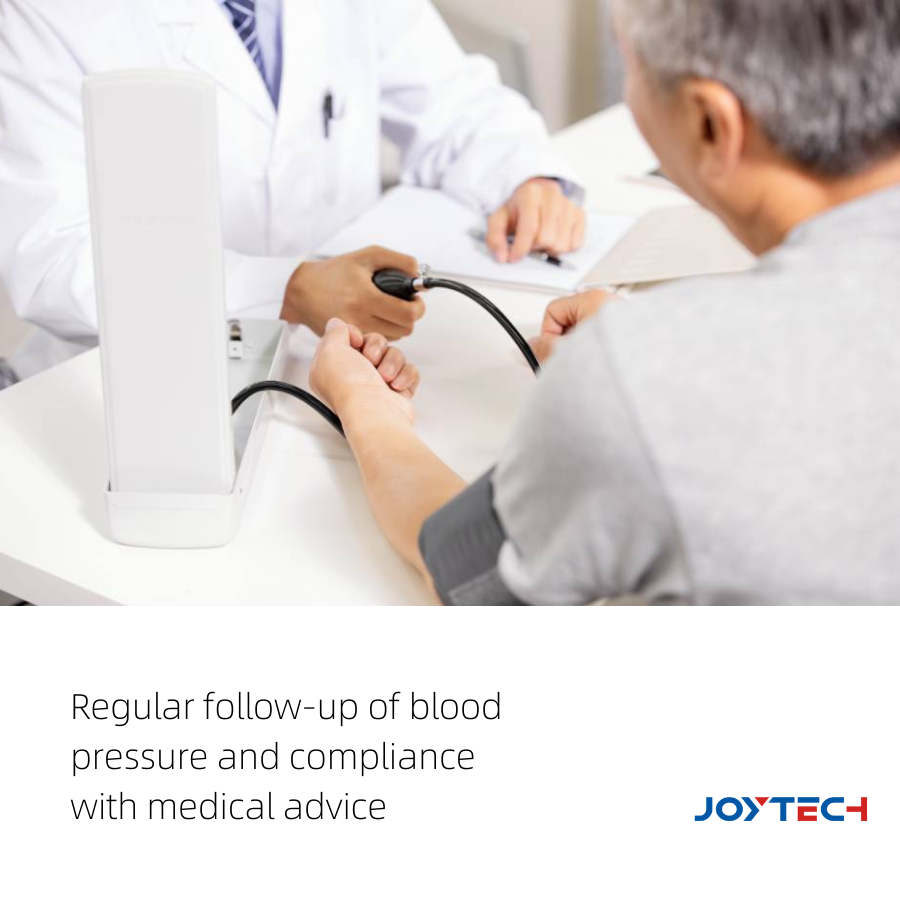Dr. Hatch notes that blood pressure always fluctuates, and it can increase with stress or during exercise. You probably wouldn’t be diagnosed with high blood pressure until after you have been checked a few times.For men, the bad news is they are more likely to be found hypertensive than women.
Dr. Hatch says the risk factors that cannot be changed include:
Gender—men are more likely to develop hypertension than women
Race—African-Americans have higher risk than other races
Age—the older you get the more likely you will develop high blood pressure
Family history—Dr. Hatch notes high blood pressure is twice as common in people with 1 or 2 hypertensive parents
Chronic kidney disease—people with chronic kidney disease are at a greater risk for high blood pressure
Additionally, there are some risk factors that you can control. Those include:
An unhealthy diet that is also high in sodium
Not exercising
Being overweight
Drinking too much alcohol
Smoking or using tobacco
Having diabetes
Stress
Hypertension treatment
Once a man is diagnosed with hypertension, he will need to get treatment. Dr. Hatch says leaving high blood pressure untreated can cause kidney disease, coronary artery disease, lung disease, heart failure and stroke. It’s also one of the biggest contributors to cardiovascular disease and peripheral artery disease, according to Dr. Hatch.Dr. Hatch says a key component to treating hypertension is making lifestyle changes, such as diet, weight loss and exercise. Dr. Hatch recommends the DASH diet, which stands for Dietary Approaches to Stop Hypertension.With stage 1 hypertension, you can expect your doctor to recommend changing your diet, losing weight and exercise. Dr. Hatch says this alone can have a good impact on your blood pressure, but he estimates that around 80% of his patients still need medication to help.Once you’ve been diagnosed with stage 2 hypertension, your doctor will recommend lifestyle changes and medication. Some of the medications your doctor may consider include diuretics, calcium channel blockers, angiotensin-converting enzyme (ACE) inhibitors and angiotensin receptor blockers (ARBs).

Hypertension and stroke
It is critical that you get your blood pressure under control. As Dr. Hatch mentioned, it can lead to several other conditions—including stroke. For men who have had years of uncontrolled high blood pressure, the risk for stroke increases. Dr. Hatch explains that hypertension leads to a build up of plaque in the arteries leading to the brain. This build up of plaque is called atherosclerosis, and hypertension can make blood vessels more prone to it by damaging the lining of the arteries.According to the Centers for Disease Control and Prevention, someone suffers from a stroke every 40 seconds in the United States. The CDC also reports that someone dies from a stroke almost every 4 minutes.The good news is, if you have hypertension, it doesn’t mean the damage is done, according to Dr. Hatch. With significant weight loss and living a healthy life, you can get off medications to control hypertension.“Have a regular conversation with your doctor about your blood pressure,” Dr. Hatch said. “If you've known about high blood pressure and not had it treated, it can cause some serious problems. Knowing about your blood pressure is the number 1 modifiable risk factor to help prevent stroke, heart attack, and kidney disease.”
For more inforamtions, please visit www.sejoygroup.com














